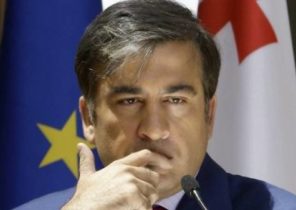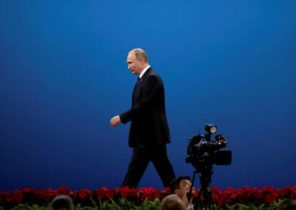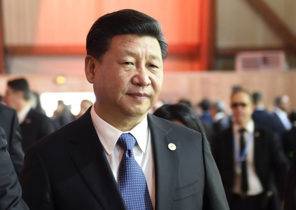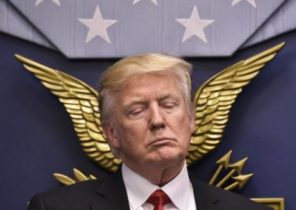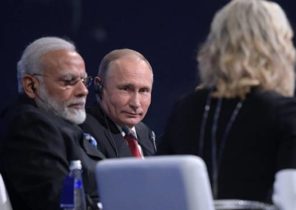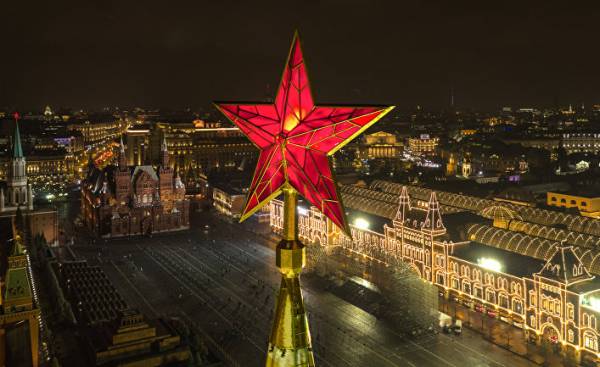
In the past the concept of neighbors meant only what it means, but today, the concept of neighbourhood includes an expanded range of issues the solution of which, as a rule, touchy Russia is often faced with the United States with his Nemesis among the great powers and the former enemy of the cold war period. Us-Russian relations entered a period of a new cold war. This period seems to be long, it will continue after the departure of Putin from the political scene, although he has a good chance to continue to rule for another ten years. From the American point of view, Russia under Putin has behaved abominably for decades. It invaded Georgia at the end of the reign of the Bush administration and today occupies part of this independent nation.
By the end of the Obama presidency, Russia seized the Crimea and contributed to the outbreak of the proxy war in Eastern Ukraine. In addition, it threatens our NATO allies in the Baltic States and places weapons in violation of bilateral treaties in the field of arms control. In the most difficult for Assad time when America sat idly by, Putin sent an expeditionary force to Syria, has changed the balance of forces in the ongoing war there and strengthened the force component of Russia’s position in the Mediterranean area of the Middle East.
It’s always difficult to answer the question, what exactly is behind aggressive moves by Russia. For centuries, the powerful neighbors Russia in the East and in the West attempted to conquer this vast Eurasian territory. The last neighbor, invaded Russia (then called the Soviet Union) was in Germany. As a result of this aggression killed 20 million Soviet citizens. Russia’s losses amounted to nearly one-third of the total number of victims of the Second world war.
These repeating invasion contributed to the formation of authoritarian governments with a distinctive mark on their collective shoulders. Russia’s attitude to its neighbours was summarized in the phrase of the Leninist “kto kogo” — that is, who will dominate whom.
And the kings and the Commissars warily watched the balance of power in Europe and Asia, as well as their smaller neighbors along its extensive borders.
In case of doubt, the acquisition, demolition and domination will always be the actions of Russia, its modus operandi.
The sense of humiliation experienced in the time of the collapse of the Soviet Union Putin, a former KGB officer, chekist’om, and his approach was very deep, and it manifests itself in numerous clashes over important and unimportant issues with the former Soviet Republics, or “near abroad” as they are called in Russia.
The presence of the Russian Diaspora in many former Soviet republics often contributes to tension, and the same applies to the existing perception of Russia’s “right” to influence the situation in neighboring States.
Russia experienced the fear, humiliation and the desire to dominate define the approach of Moscow to the Russian-American relations.
The enlargement of NATO, its purpose was to support the democratization of Eastern European States — have exacerbated the humiliation of Putin, and has caused problems in the relations between new NATO members and Russia.
Our struggle against “al-Qaeda” and “Islamic state” (banned in Russia organization — approx.ed.) was seen as further proof of our aggression and desire to dominate. Our desire to help anyone in a difficult position in democracies is often perceived as interference of the worst kind, as the attempt to make “color revolution”, and at the same time, Putin accused Secretary of state Hillary Clinton.
During the reign of such a sensible and inclined to use soft power, President Barack Obama first attempted to hold the reset in U.S.-Russian relations, Putin has the opportunity to achieve the benefits in Syria and Ukraine. He also strengthened the Russian armed forces and has made significant progress in the field of nuclear weapons, missiles, new tanks and special forces.
The ubiquitous Russian “little green men” appeared in Ukraine and in Syria. Russian cyberweapons is often used and has harmful effects inside the United States and in countries that are our allies.
Which President trump strike Syria with cruise missiles, as well as progress on the battlefield in the area of Raqqa allowed to recover part of the initiative in Syria, but it remains unclear how long this confirmed the American force will retain its influence there. Recently shown solid, Pro-NATO position of the President trump and Secretary of state Tillerson against Russia augurs well in terms of contacts with Putin and his government.
Due to problems, partly due to Putin and Russia partially, our future relations with this country will be an active competition, and while they can be described as limited cooperation. Partially overlapping and common interests, as well as the economic weakness of Russia suggests that the tensions will escalate into conflict.
Russia can afford to gamble, but about waging a deliberate war can not be considered.
Taking into account the peculiarities of Russia and Putin, the United States must have the General concept for coordination of individual areas of policy, developed by team trump. Speaking simply, the United States should:
— a policy of firmness toward Russia, but try not to humiliate her;
— search for common or overlapping interests in Syria and in other conflict regions, including in Ukraine and Georgia;
— to strengthen alliances in Europe and northeast Asia. You should not force the allies to seek the protection of the Russians;
— continue to strengthen the deterrent the position of NATO in Central Europe;
— to resume bilateral negotiations in the field of arms control. Russia and the United States have eased tensions and saved billions through arms control;
— to maintain the best relations with China. Tripartite policy may be useful, however, in this case, there is a risk of political manipulation by outside powers.
— without much publicity to inform Moscow that we are not going to continue NATO expansion through the inclusion in the Alliance of those countries that were formerly part of the Soviet Union.
Ultimately, Russia is not Canada, and she is never friendly state. Even when Putin would be in a nursing home the KGB, the Russian-American relations will not be serene.
Russia will remain a hostage of its history, as well as a victim of his authoritarian style of government.
The United States will be able to achieve success if we avoid war and the impact of negative moments generated by the toxic politics of Russian and the Eurasian space that it occupies.
And while it can be considered a bonus if we sometimes find a common or overlapping interests.
Joseph Collins is the Director of the Center for complex operations national defense University (Center for Complex Operations at the National Defense University). He is a retired Colonel of the US army, in the period from 2001 to 2004, he was Deputy assistant Secretary of defense and was responsible for the operations stability.
***
The authors of the articles Express the opinions are their own and do not necessarily reflect the views of the National defense University, magazine the Hill, the Ministry of defence or any other government Department.
